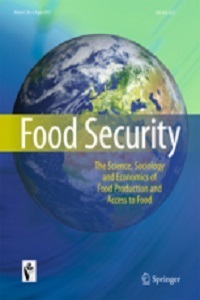Cassava, originally from South America, is the fourth most important source of calories in the developing world after the cereal crops wheat, maize, and rice. Worldwide, it feeds an estimated 700 million people directly or indirectly. Cassava production has increased steadily for the last 50 years, with 242 MT harvested in 2012. The increase is likely to continue as farmers in more than 105 countries come to recognize the crop’s advantages. A semi-perennial root crop, cassava can stay in the ground for up to 3 years. This makes it an excellent food security crop: when all other crops have been exhausted, cassava roots can still be harvested. It is naturally drought resistant and resilient to climatic changes, high temperatures, and poor soils, and in addition, cassava responds extremely well to high CO2 concentrations, making it a very important crop for the 21st century.
A global alliance declaring war on cassava viruses in Africa
Citation: Legg, James; Attiogbevi Somado, Eklou; Barker, Ian; Beach, Larry; Ceballos, Hernan; Cuellar, Wilmer; Elkhoury, Warid; Gerling, Dan; Helsen, Jan; Hershey, Clair; Jarvis, Andrew; Kulakow, Peter; Kumar, Lava; Lorenzo, Jim; Lynam, John; McMahon, Matthew; Maruthi, Gowda; Miano, Doug; Mtunda, Kiddo; Natwuruhunga, Pheneas; Okogbenin, Emmanuel; Pezo, Phemba; Terry, Eugene; Thiele, Graham; Thresh, Mike; Wadsworth, Jonathan; Walsh, Steve; Winter, Stephan; Tohme, Joseph M.; Fauquet, Claude M.. 2014. A global alliance declaring war on cassava viruses in Africa . Food Security 6(2):231-248.
2014-08-06
Africa
journal_article

